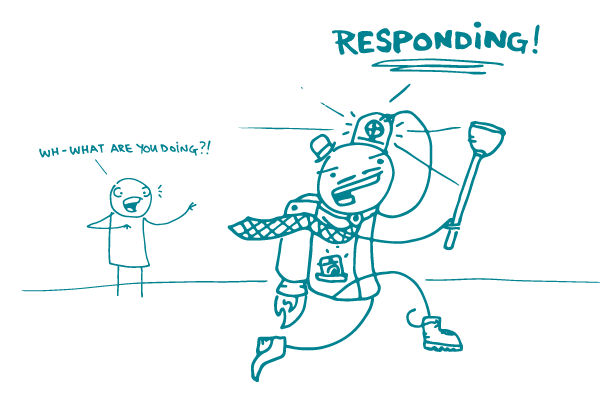
It’s time for another installment of our unofficial “use simpler words” series. You remember, don’t you? (Let us jog your memories: procedure, inflammation, and monitor.)
This week’s word, “respond,” doesn’t need to be replaced or simplified so much as it needs to be clarified. Why? Well, it’s just plain vague. Does a hazmat team respond to a toxic chemical spill by singing an opera about it? Of course not — they respond by donning their hazmat suits and working to keep the public safe.
Consider these examples:
- It will be 6 weeks before we can tell if the cancer is responding to the treatment.
- When the hurricane hits, we will respond quickly.
C’mon… we can be clearer than that, dear readers! Try these on for size instead:
- It will be 6 weeks before we can tell if the treatment is shrinking the tumor.
- When the hurricane hits, we will act quickly to keep people safe and help anyone who’s hurt.
Sure, you may use a few more words, but you’ll be more specific and focused on action. And who doesn’t ❤ that?
The bottom line: Instead of using the word “respond,” say what’s actually happening.
Browse recent posts